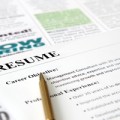
Many Americans aren't getting the rest they need to function at their best, and employers are feeling the effects in the form of reduced productivity, a new poll suggests.
Close to 3 in 4 full-time workers say they go into work despite being overtired, based on a recent survey conducted by staffing services firm Accountemps. Of these, almost 33 percent indicated that they routinely don't get the rest they need, but come into work regardless.
Several studies have documented just how sleep-deprived many Americans are. Even though doctors at the National Sleep Foundation recommend getting at least seven to eight hours of shuteye every night, 40 percent of U.S. adults routinely get less than this amount, a survey done by Gallup found.
How does sleeplessness bear itself out on the job?
In addition to diminished productivity, workers today attest to a number of consequences in the workplace, both to themselves and their employers, by not sleeping enough. For instance, 52 percent said they're more easily distracted, according to the Accountemps survey. Close to half – 47 percent – indicated they procrastinate more often and 40 percent say they make for bad company with fellow co-workers because they're quick to anger.
Bill Driscoll, district president at Accountemps, noted that when employees don't get enough pillow time, everyone suffers.
"There is no upside to having an exhausted team at work," Driscoll explained. "Talk to your employees individually to come up with solutions."
He added that many businesses are rectifying the situation via employee benefits.
"Offering a more flexible schedule may alleviate long and costly commutes," Driscoll cited as an example. "[Additionally], bringing temporary staff on board may cut down on working after-hours. Reorganizing current priorities may lead to more manageable workloads."
Employee benefits are about much more than health insurance. They often include other job perks as well, such as personal time off, flexible schedules, non-traditional work hours and telecommuting options. Approximately 40 percent of employers are more willing to negotiate job perks with staff members than they were last year, based on a separate poll conducted by Robert Half, the nation's largest specialized staffing and recruitment firm. Only 6 percent said they're less open to discussing terms today than they were 12 months ago.
Driscoll added that businesses who don't nip this sleep issue in the bud now will suffer the consequences later on.
"Failing to take action can lead to big problems such as burnout, turnover and a negative corporate culture, along with lost sales and productivity," he said.
How to help your employees get more zzz's
Human resource experts say there are several potential resolutions to workers who aren't getting enough sleep. For example, employees should consider taking breaks more often. Some prefer to keep their "nose to the grindstone," believing that in doing so, they're the making the most of their time. However, failure to take a breather can result in diminishing returns because workers aren't taking the time they need to recharge their batteries.
Promoting staff members' option to work from home is another potential solution. While some may find they do their best work in the office, others prefer the comfort and familiarity of home. Plus, the time that telecommuters spend driving in they can use for sleeping instead. As little as 20 minutes may make all the difference in the world.





